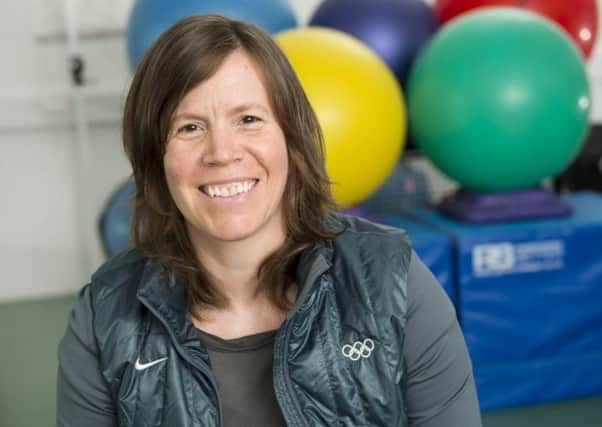Former Olympian to help athletes combat illness and strains at Rio Games


And we winced as Derek Redmond’s hamstring popped as he chased his 400m dream in Barcelona before being helped over the finish line by his devoted dad.
But now one former Olympian and city academic is hoping to make injury nightmares a thing of the past.
Advertisement
Hide AdAdvertisement
Hide AdDr Debbie Palmer-Green, a lecturer and researcher in sports injury and illness prevention at Edinburgh Napier, won 15 medals at world and European level as a short track speed skater and competed for Great Britain in three Winter Olympics before retiring at the 2002 Salt Lake Games.
She will make the journey to the Olympics in Rio next month as part of her work with the International Olympic Committee Scientific and Medical Research group.
The IOC has a mandate to protect the health of elite athletes, and Debbie, 42, is a member of the medical research team which will record all instances of injuries and illness among the competitors in Brazil.
The team monitors athlete health during major Games events to establish how and when injuries and illnesses occur, with the aim of identifying the risks linked to top-level sport and recommending actions to reduce them.
Advertisement
Hide AdAdvertisement
Hide AdWhile sports fans at home are glued to the action in Rio, Debbie will be travelling between the athletes’ village and competition venues, analysing medical computer records and collating data.
Her work with the IOC will be used to devise new strategies to help all competing countries combat injury and illness, whether it be by tackling hygiene issues to reduce the threat of stomach bugs in the athletes’ village or by making changes to training regimes and/or competition rules.
Debbie, who lectures in injury and illness epidemiology at Edinburgh Napier, said: “Much of our work in Rio is based around ensuring quality of data collection during the Games, to ensure we capture key information in what is a high-pressure sporting environment for athletes, coaches and medical staff.
“With almost 11,000 athletes across multiple Olympic sites, it is enjoyable but challenging work.
Advertisement
Hide AdAdvertisement
Hide Ad“Ultimately, the aim is for us to provide new knowledge and key information that national and international sporting governing bodies can work with going forwards, for the benefit of athlete health.”
The IOC’s Injury and Illness Surveillance Programme has evolved since 2004, when the focus was on the summer Games and team sports only, and this will be Debbie’s third Olympic working for the IOC.
In addition to in-Games research, the body now funds research centres around the world, studying health issues in the general exercising population as well as elite sport.